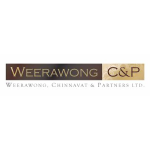Following the easing of travel restrictions in Thailand and the APAC region due to the improvement in the overall COVID situation, the market for M&A transactions gradually recovered in 2022. This was particularly true in those sectors that had been heavily affected by the pandemic such as manufacturing, consumer goods and retail, food and beverage, hospitality, and real estate. E-commerce and telecommunications, media and technology (TMT) have been the standout performers, while changes in consumer habits due to COVID restrictions have led to an increase in M&A activities involving e-commerce. Namely, this has benefitted technology and fintech companies such as online shopping and delivery platforms, consumer or digital lending providers, and data centers.
As a result of the pandemic, many Thai business operators are beginning to recognise the importance of diversification and asset allocation. Several Thai listed companies are searching for M&A opportunities in various sectors in which they are not already operating but where they could create synergies for their existing businesses such as technology, e-commerce, renewable energy, healthcare, and life sciences.
One of the ‘talk of the town’ topics during 2022 was the proposed merger between the two major telecommunication operators in Thailand: True Corporation and Total Access Communication (dtac), which would result in the creation of Thailand’s largest mobile network operator valued at $7.3 billion and with a total of more than 51 million customers, thus commanding around 54% of the local mobile communications market. This transaction came under criticism due to the reduction in marketing competition and the perceived direction being taken by Thailand’s telecommunications regulator (the National Broadcasting and Telecommunications Commission (NBTC)), since the NBTC’s approval may set a new precedent for merger clearance in the telecommunications industry. The merger was completed on 1 March 2023, and is regarded as the largest telco merger in Southeast Asia by combined enterprise value.
Public or private
The Thai markets are generally driven by both private and public M&A transactions. Whilst public M&A deal volumes have increased, private M&A is more prevalent as target companies are mostly private companies and the size of private M&A transactions is generally smaller than those of public M&A transactions, and therefore, more accessible. Public M&A transactions are regularly seen in relation to TMT, logistics, oil and gas, and infrastructure sectors, as large-scale sellers and buyers are often involved. Private M&A is more active in the e-commerce, retail, renewable energy, food and beverage, and real estate sectors, given the form of legal vehicle used and the size of the business acquired. In addition, foreign buyers may be less inclined to invest in listed companies due to the risk of the mandatory tender offer requirement being triggered.
Deal highlights
Several significant M&A transactions in Thailand were completed in 2022 as the market recovered from the pandemic. One of these was a landmark reorganisation of the financial business group of Siam Commercial Bank Public Company Limited (SCB) - one of the largest banks in Thailand. This involved a tender offer for SCB shares by SCB X Public Company Limited (SCBX), delisting of SCB shares, and listing of the new SCBX shares on the Stock Exchange of Thailand (SET).
The tender offer for SCB shares by SCBX was overwhelmingly accepted by shareholders holding over 99% of SCB's total shares and the total offering amount was $1 billion. The restructuring gained widespread publicity as it significantly enhanced the potential for flexibility and business growth within the SCBX Group, with SCBX now serving as the ‘mothership’ of the group.
The True-dtac merger also led to a debate over the interpretation of merger control rules and the Thai authority’s power to intervene or exercise discretion over a merger in the telecommunications industry. Although the NBTC has imposed certain conditions on the True-dtac merger such as price ceilings and a requirement to reserve spectrum for mobile virtual network operators, the regulator's decision was largely expected given the existing economic concentration in the telecommunications market.
Another M&A transaction worth mentioning is the sale by Citi of its consumer banking business in Thailand to United Overseas Bank (Thai) Public Company Limited (UOB). This was part of a broader sale agreement covering consumer banking across Malaysia, Thailand, Vietnam and Indonesia (but not including Citi's institutional businesses). Whilst the transaction highlights Citi’s intention to exit consumer banking across 14 markets in Asia, Europe, the Middle East and Mexico, it broadens and reinforces UOB’s franchise in the ASEAN region.
Deal trends
The emergence of digital disruption during the pandemic steers M&A trends in Thailand. The technology industry, particularly e-commerce, fintech, and data-centers, is once again attracting more attention from investors. These investors include listed companies and financial institutions, who are keen to diversify their business portfolios to adapt to the current business trends and provide greater synergies, whether as an operator or a service provider. Investments in the form of joint ventures, venture capital investments or strategic collaborations continue to be the preferred schemes as they offer quicker ways of entering other sectors, whilst requiring lower capital commitment.
Deal mechanics and the global economy are some of the most significant factors influencing deal structures in Thailand. Despite the economic downturn caused by the pandemic, operators appear to have embraced M&A as part of their growth strategy, as challenging conditions often create opportunities for buyers to achieve better deals and lessen the competition.
During and after the pandemic, fixed price has remained the most common mechanism, as the parties wish to conclude the deal quickly and avoid any adjustments pre or post-completion. If the deal size is large, bidding or sale by auction may be preferable for a Thai seller who wishes to have access to a larger pool of potential buyers.
To help reduce investment risks and increase their ability to compete in a rapidly changing economy, many Thai conglomerates have started to invest in related or new lines of business (sometimes referred to as the ‘New S-Curve’). These include, for example, technology, renewable energy (including electric vehicle and battery), healthcare, and life sciences. In addition, the ability to exit (either through a trade sale or an IPO) is increasingly important for buyers investing in new lines of business or those that have exponential growth such as start-up companies.
Financial investors continue to shape the way M&A transactions are conducted in Thailand. This is particularly in terms of M&A documentation, which is becoming aligned with international practices, including purchase price mechanisms, scope of warranties and indemnities (W&I), qualifications to warranties, limitation of liabilities, and use of W&I insurance. In addition, the due diligence involving Thai target companies is becoming more focused on regulatory matters, particularly anti-bribery and corruption, anti-money laundering, and data privacy aspects. Private equity investors and venture capitalists are increasingly willing to take on minority interests alongside existing owners.
Legislation
The key legislation governing private M&A transactions is the Civil and Commercial Code (CCC), with the Department of Business Development of the Ministry of Commerce being the main regulatory body.
For public M&A transactions, the key legislation is the Public Limited Companies Act B.E. 2535 (1992) (PLCA), and, in the case of a public company which is listed on the SET or has offered securities for sale to the public, the Securities and Exchange Act B.E. 2535 (1992) (SEC Act). The Office of the Securities and Exchange Commission of Thailand (SEC) and the SET are the main regulatory bodies for public M&A deals and securities offerings.
In addition, the Office of the Trade Competition Commission of Thailand (OTCC) is the regulatory body monitoring merger control in Thailand in general. The Trade Competition Act B.E. 2560 (2017) (TCA) is the main legislation governing and regulating M&A of businesses that may result in a monopoly, market dominance, or substantial reduction of competition in a relevant market in Thailand. The TCA covers M&A transactions, except for those in sectors which are regulated by specific legislation such as telecommunications, broadcasting and television, and energy.
On 8 November 2022, the act amending the CCC (Amended CCC) was issued, with changes around meeting procedures, the minimum number of shareholders requirement, and a new merger scheme for private companies. Some of these amendments were influenced by the COVID restrictions, such as the holding of board meetings or shareholders’ meetings via electronic means and the use of electronic notices. It is expected that these amendments will help reduce the practical challenges faced by Thai and foreign operators doing business in Thailand, as well as increase the number of mergers by Thai companies.
With effect from 7 February 2023, parties to M&A deals in Thailand have two options for consolidating private companies:
Amalgamation – a consolidation where two or more companies are combined, which results in one new separate company being formed; and
Merger – a consolidation where two or more companies are merged, which results in only one company remaining.
The unprecedented new merger scheme will allow greater flexibility for business acquisitions and reduce legal obstacles in business/asset transfer deals, thereby promoting and facilitating M&A transactions in Thailand.
Pandemic pressures
The pandemic has emphasised the importance of the material adverse change (MAC) clause in share purchase agreements. Parties have been paying greater attention to trigger events, carve-outs and the effects of the MAC clause, particularly in relation to manufacturing businesses, which were severely impacted by the prolonged COVID situation. Usually, such MAC clauses are heavily negotiated, given that they may affect deal certainty or result in an unquantifiable risk for the party bearing such risk.
While ESG has become increasingly important for many businesses in the last year, ESG-linked M&A deal terms such as ESG warranties and indemnities remain uncommon in the Thai market when negotiating a transaction agreement.
Market misconceptions
Whilst the concept of a nominee shareholder may be acceptable in certain jurisdictions, it is illegal for Thais to act as nominee shareholders to enable a foreigner to operate a business in circumvention or violation of the foreign ownership restrictions under the Foreign Business Act B.E. 2542 (1999) or the Land Code. Given that nominee structures are often seen in Thai companies with different classes of shares, it is a common misconception that nominee structures are legally permissible and enforceable under Thai law.
When structuring an M&A transaction involving foreign entities, clarification is often sought regarding the foreign investment and land ownership restrictions that apply to foreigners in Thailand. That said, not much attention is given to the legal implications of the use of nominee structures as they can still be seen in certain industries such as real estate, tourism, agriculture and retail.
Merger control clearance has sometimes been overlooked by investors as this is still considered relatively new to the Thai market, despite the increasing number of rulings and precedents regarding the Thai merger control regime under the TCA.
Technology
Due to the travel restrictions and social distancing requirements imposed during the last few years, most M&A deals during this period were conducted remotely and this largely continues to be the case. The use of virtual data rooms for due diligence processes, remote closing, electronic exchange of signature pages, and the conducting of board and shareholders’ meetings via electronic means are now quite common in Thailand.
Notwithstanding the above, whilst electronic signatures are generally recognised under Thai law, they are not widely used in commercial transactions. The Thai authorities still require the use of wet ink signatures for official documents, and there are insufficient court rulings on the use of electronic signatures. That said, there have been increasing trends, especially in cross-border deals, where electronic signatures are used with documents by signing via trusted software which can verify the identity of the person signing through a secure system.
Going public
The takeover rules under the SEC Act set out the key requirements of a tender offer for the shares of a public company listed on the SET. The acquirer is required to make a mandatory tender offer to buy all the shares and equity-linked securities of the target company in the case where it has obtained the shares in a quantity which reaches or exceeds the threshold of 25%, 50% or 75% of total voting rights of the target entity. A mandatory tender offer also extends to an intermediary or the ultimate holding company which controls the target; this is known as the ‘chain principle’ rule.
Besides the mandatory tender offer, an acquirer, who acquires shares of the target company in a quantity that does not trigger the tender offer threshold, may submit a voluntary tender offer to obtain control in the target company. This allows the offeror to announce the tender offer for all or a portion of the shares of the target company and set out the minimum percentage of shares the offeror wishes to buy.
Restrictions on foreign shareholdings for restricted businesses under the Foreign Business Act B.E. 2542 (1999) are another important factor for both public and private M&A transactions. This is because they prohibit a foreigner (e.g., a foreign entity or a Thai entity with 50% or more of its registered capital owned by foreigners) from engaging in a restricted business in Thailand. Due to these restrictions, a foreign investor may decide to make a partial tender offer for less than 50% of the target’s shares. In such a case, approval of the shareholders’ meeting of the target company and the SEC must be obtained and it shall be subject to certain other conditions as specified in the relevant notification issued by the SEC.
An unsolicited bid can be structured in a similar manner to a non-hostile bid, either through a mandatory or voluntary tender offer. That said, due to the fact that a minority squeeze-out is not recognised under Thai law, hostile bids are not widely deployed in practice.
Whilst the parties may set out conditions for a voluntary tender offer to take place, a mandatory tender offer is unconditional. The conditions for launching a voluntary tender offer usually include an approval from the relevant regulatory authority, an approval from the board of directors or shareholders of the offeror, and/or the relevant third-party consents to be secured. In recent years, following the full enforcement of the merger control regime, as well as the growing number of high-profile public M&A transactions in Thailand, more attention has been paid to merger clearance in voluntary tender offers. Additionally, a provision in relation to the MAC clause may also be included as a condition to the acquisition of the shares.
In addition to the above, under Thai public takeover rules, the tender offer may generally be withdrawn when:
There is severe damage to the status or assets of the target company during the tender offer period which is not the result of an act of the offeror or an act for which it is responsible; or
There is a material reduction in the securities value during the tender offer period which is caused by any frustrating action committed by the target company during the tender offer period, provided that these are stated in the tender documents and no objection is raised by the SEC.
Break fees are not commonly employed in public M&A transactions in Thailand. Rather, public M&A deals are usually protected by non-refundable deposits or exclusivity undertakings in order to ensure protection for offerors. Nonetheless, when a break fee is adopted, Thai courts will award damages on an actual basis. This means that the quantum of the break fee can be adjusted at the court’s discretion.
Private matters
The most frequently used consideration mechanisms in Thailand are fixed price and completion accounts. Although there has been an increase in the use of locked box mechanisms in the last few years, this has been less common compared to other purchase price mechanisms. This is especially true following COVID, as the parties’ focus is now on concluding the deal and cashing in quickly, or the buyer usually wishes to conduct a true-up exercise post-completion. Earn-out mechanisms are used from time to time, especially when the founders or the executives are locked in for a certain period of time after closing.
Whilst the use of W&I insurance has increased in cross-border M&A transactions (especially where the seller is a private equity investor), it is still uncommon in Thailand. This is due to unfamiliarity from the Thai parties, high costs and product limitations, and coverage exclusions and limitation of liabilities. That said, some Thai listed companies are open to the use of W&I insurance in outbound M&A transactions.
Apart from the MAC clause, required regulatory approvals, and all licenses and permits which are material for the operation of the target business, are usually requested by the buyer as conditions precedent to completion. In addition, merger control clearance is becoming more crucial at the structuring stage of deals, as the relevant players become more familiar with the legal requirements following the full enforcement of the merger control regime in Thailand.
It is common practice to adopt foreign governing laws in cross-border M&A transactions. The Thai courts generally recognise and uphold a contractual choice of foreign law, especially when one of the parties is a foreign entity or person. This is subject to the usual reservations that it is not contrary to public order or the good morals of the people of Thailand, and such foreign law is proven to the satisfaction of the Thai courts to be suitable. Recognition of the foreign governing law may be facilitated if a share purchase agreement governed by foreign law is enforced outside of Thailand, such as through foreign arbitration or a foreign court.
Looking ahead
The most common exit mechanisms in Thailand are through trade sales and IPOs, which are usually found in private equity deals. Exit options can be (and often are) included in a shareholders’ agreement.
Notwithstanding the slow pace of M&A deals during the last few years because of COVID restrictions, cross-border deal flow is set to continue increasing in 2023 due to the global recovery from the pandemic. One of the positives of the pandemic has been the expansive growth in the retail, e-commerce, technology and healthcare sectors in recent years. In view of this, joint ventures, bolt-on acquisitions and strategic collaborations will continue to play a crucial role in M&A transactions going forward. Operators in the e-commerce, retail, financial services, and TMT space will be very busy searching for investment opportunities, business partners, and financial sponsors.




